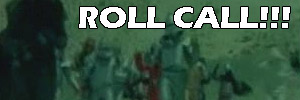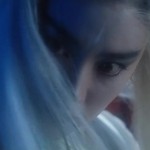The Bride with White Hair
aka 白髮魔女傳 aka Bai fa mo nu zhuan

1993![]()
Written by Elsa Tang Bik-Yin, Lam Kee-To, David Wu Dai-Wai, and Ronny Yu Yan-Tai
Directed by Ronny Yu Yan-Tai

The Bride With White Hair films are classic wuxia tales from an era when Hong Kong cinema was undergoing its latest periodic resurgence. They’re one of a pack of films that helped hook people like me into becoming Hong Kong cinema fans for life, and Part 1 is one of the best films from 90s Hong Kong period. The frenetic pace, heartfelt romance, and sorrowful endings propel it to the top. The sequel picks up a lot of the story threads but goes in its own direction (and will be discussed in its own review), but is necessary to see the conclusion of the tale begun in The Bride With White Hair.
Lien Ni Chang and the rest of the characters originated in the serialized wuxia novel 白髮魔女傳 (Baifa Monü Zhuan) by Liang Yusheng (published between 1957-58). Each filmed version of the tale borrows different elements from the source, using it to tell their own tale. While Pearl Cheung Ling’s Wolf Devil Woman goes in the direction of energetic insanity to create a tale of revenge, The Bride With White Hair films go with a love story with an ultimately tragic ending (though still romantic.) I have not seen the 1950s Cantonese version (the three parts of which may or may not still even exist!) The character surfaced again in The Forbidden Kingdom, has been the subject of several television serials, and will be getting a new big budget film version in 2014 (which will hopefully break the trend of big budget Chinese cinema being boring and empty despite the effects!)

The story of the Bride with White Hair is famous enough that images of a man-hating white haired woman, with her prehensile hair used as a weapon, has become an iconic imagery in wuxia. The original stories contain all sorts of clan intrigue, palace conspiracies, regicides, and bandits with a mix of historical and jianghu characters. The simplification of the tale to turn it into a passable movie is understandable, though I’m sure there are purists upset that yet another adaptation isn’t true enough to the original tale. Every version of the tale I have seen has strayed drastically from the source, using it as a springboard to tell their own interpretation based on what elements stood out to them. Ronny Yu Yan-Tai saw is as a tragic romance, and the two films are united by their shared love dynamic.
The Bride With White Hair is packed with great action sequences, with plenty of wirework and sword battles. The set design in particular is well done, the madness of the Supreme Cult displayed by the decoration of the headquarters and the writhing and dancing pandemonium that mirrors the extremeness of the twin Chi Wu Shuang. Chi Wu Shuang are presented at times in extreme angles and odd closeups, while their makeup and costumes enhance their feeling of wrongness. It is no mistake the villains are so beyond evil, without their influence, Lien Ni Chang would lose sympathy upon her transformation and eventual turn as villain in the sequel.

The love tale begins after it ends (or at least as it ends at the end of this film), with Cho Yi Hang guarding the magic flower as he waits a decade for it to bloom, in the midst of a never-ending blizzard atop a mountain. A group of soldiers working for the Emperor arrive, demanding the flower to save the Emperor himself. Cho kills them all, and the leader’s dying breath asks who could be more important than the emperor.
Cho narrates that he has a woman in his heart, and the film drifts into a the flashback…

|


The film begins with Cho’s love already established, then retreats to the past to show how the characters had been connected most of their lives, despite their very different upbringings. Cho Yi Hang is a student at Wu Tang Clan, the most powerful of the 8 United Clans, and is tapped by the leader to be his successor. Cho excels at martial skills, but also has a fierce righteous streak, which leads him to do unorthodox and troublesome things in the name of justice. An example is him saving a baby goat from being killed for food by a farmer, which causes him to beat up said farmer and be pursued by wolves while on the run. He is saved by a young girl playing a flute, the music of which charms the wolves and they depart.
The now grown Cho still causes trouble in the name of justice. Starving peasants who have stolen grain from the army are then massacred by the army, until a mysterious swordswoman flies in and slaughters the murdering soldiers. She then helps Cho deliver a baby born from one of the fleeing peasants, before disappearing just as she came. Cho manages to follow her and spies while she bathes, she catches him and is prepared to kill him until she’s given orders to return to her leaders and flies off.
The mysterious woman is a member of Supreme Cult, which the subtitles later helpfully just call Evil Cult, in case you don’t notice their insane leader Chi Wu Shuang killing his own followers for coughing. I should clarify about Chi Wu Shuang, who is both a he and a she, as they are different gendered conjoined twins, joined at the back, and full of insane power and rage. The male side is obsessed with Lien, the pair having found her as a child being raised by wolves, and taught her martial arts. Lien became their top killer. The female side of Chi Wu Shuang is just 100% crazy, her only obsessions are laughing maniacally and insulting the male side’s lust for Lien. Supreme Cult prepares to kill the leaders of the 8 United Clans (as revenge for being banished 20 years prior), Lien recognizing Cho Yi Hang from the images of the leaders.
The twin Chi Wu Chuang is one of the most deranged and memorable villains from Hong Kong cinema. It’s yin and yang in action on the big screen! The dual nature of the character is at first hinted at, the audience only seeing the male side (played by Francis Ng Chun-Yu), but then a female voice starts piping in and mocking him. Male Chi Wu Shuang flips to show the female half (Elaine Lui Siu-Ling), wearing an identical outfit, but full of mad glee. Elaine Lui is impressively evil, her character beyond sadistic and just lost in a world of having power over others. As most of what happens in The Bride with White Hair ends up tragically for someone, she always has a reason to laugh.
Cho has grown beyond just striking out for justice to actively not wanting to battle enemies for the state that have done nothing to threaten the Empire. While the clans go to war, Cho is forced to lead the troops over his objections, and he later gets drunk with a general friend and relinquishes command to the ambitious Ho Lu Hua (who also used to crush on him) When Supreme Cult members lead by Lien attack the United Clan troops, Cho and Lien are forced to fight. Cho recognizes that she must kill him to fulfill her mission, and he is prepared to die until Lien is needled in the back by Ho Lu Hua. Cho grabs Lien and flies off.
The two stay at the waterfall as Cho heals Lien from her injuries. They talk in between their lovemaking sessions. Lien only has a family name, and is without a real name until Cho dubs her Ni Chang. The pair commit themselves to each other, including such foreshadowing as Ni Chang mentioning her hair becoming white, Cho mentioning the rare flower, and Cho vowing to never mistrust Ni Chang. Leaders on both sides angered over the loss of the pair, and vow to get them back.
Star-crossed lovers from two different worlds that are at odds at each other aren’t going to have an easy time, and the pair in this story are no exception. Lien Ni Chang wants to leave her cult, enraging Chi Wu Chuang. The male have says he will let her go, but only if he gets to make love to her. As he begins, the female half mocks him because Ni Chang is giving her body, but not her mind or her heart. Angered, Chi Wu Chuang declares that Ni Chang will have to walk a gauntlet of bezerk cultist beating on her to make her way out of the cult, without using any kung fu to fight back. She does just that, despite no one expecting her to live through the torment.


Ni Chang can survive being beaten by dozens of insane cultist madmen, but she cannot abide betrayal by the one she loves. Unfortunately, her destiny is to get just that! (How else is she going to have white hair? Bad hair dye?) Cho’s dragged back to his clan upon learning his former friend General Wu San Kuei went traitor and let Ching troops through the gates, leading to government overthrow and clan members are being killed. The Wu Tang Clan’s base is raided and Master is killed and beheaded. The only survivor blames the wolf girl before he dies. Right then, Ni Chang comes by to see Cho, the Wu Tang blame her and attack. Cho tries to stop the violence, but he also doesn’t believe that she didn’t do it, and she’s injured during the melee.
The mistrust and betrayal unlocks something inside Lien Ni Chang, and she gives in to the rage and her hair turns all white. She slaughters everyone with her magical prehensile hair, except Cho. Lien Ni Chang declares that Ni Chang is dead. But the real culprits are the twins, who took the form of Ni Chang as they killed everyone.
Cho’s attempts to be peaceful are called weak by his fellow clan members, and his Master tries to explain that being kindhearted is a weakness, because the enemy won’t be. Cho is disillusioned enough at this point he is willing to wander off and become a recluse to avoid being a tool for slaughter. While Cho’s ideas are presented as noble, there is also the reality of the enemies haplessly slaughtering people just as much as the government troops.
Both characters end up becoming extreme versions of futures they predicted for themselves. Cho becomes a recluse, hiding out near a magical flower for a decade. Lien Ni Chang’s hair does turn white, and she tracks down and destroys most of the 8 clans out of revenge for her betrayal.
The tale has not ended, for Part 2 will see a conclusion, though the story will take on a different tone and largely follow different characters.


Rated 9/10 (historical, the flower, the solitude, wacky kid, dance, medallion, jilted anger, wolf concert, children of the cult)
Please give feedback below!



















4 Comments
Pingback:
December 22, 2013 at 3:00 pmPingback:
December 28, 2013 at 12:05 pmsunny yew
April 1, 2016 at 4:21 pmFuck you..I want to watch the movie not see the stupid write-up, asshole.
Tars Tarkas
April 1, 2016 at 10:53 pmSo buy the movie, dumbfuck!